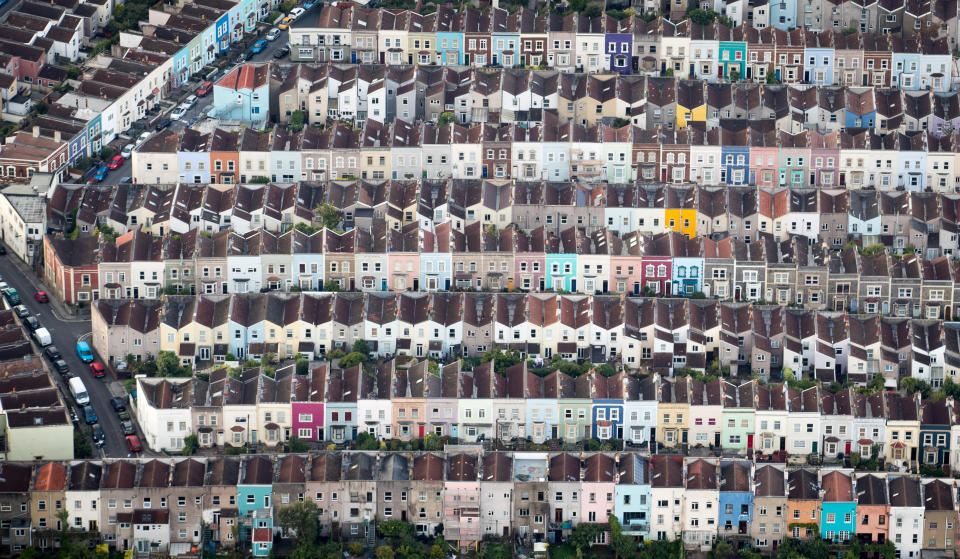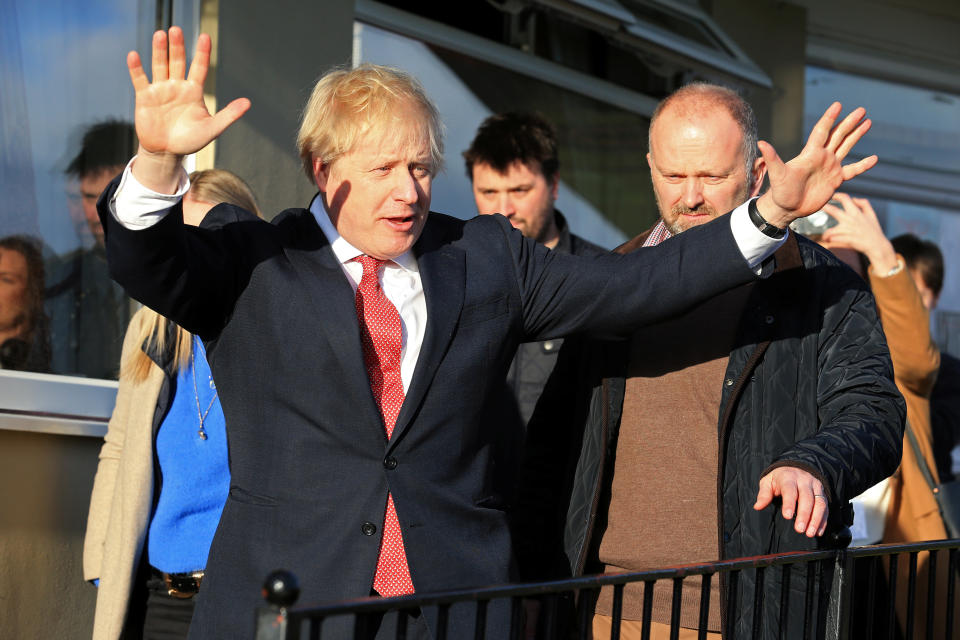UK house prices see biggest leap in more than a year

Annual house price growth in Britain hit its highest rate in more than a year this month, new figures show.
Prices were 1.9% higher than a year earlier for the average British property sold with a Nationwide mortgage in January, topping analysts’ expectations.
It marked the fastest annual rate of growth since November 2018, with sales and price growth relatively stagnant in recent years amid Brexit uncertainty and higher property taxes.
The figures from the lender are the latest in a string of signs in recent data of renewed activity and a pick-up in price growth in the UK property market.
Prime minister Boris Johnson’s election victory is widely seen to have increased market confidence, easing Brexit uncertainty and ending any immediate prospect of a radical Labour government.
READ MORE: Fastest monthly rise in property prices in 18 years on ‘Boris bounce’
The Nationwide figures suggest average sale price also rose 0.5% over the month from December to January alone, rising to £215,897, according to the figures from the lender.
Last month had seen prices been near-flat month-on-month, rising just 0.1% on November, with annual growth running at 1.4%.

Robert Gardner, Nationwide's chief economist, said: “January saw a further modest pick-up in annual UK house price growth to 1.9%, from 1.4% in December. This follows twelve 12 successive months in which annual price growth had been below 1%.”
“Looking ahead, economic developments will remain the key driver of housing market trends and house prices. Much will continue to depend on how quickly uncertainty about the UK’s future trading relationships lifts, as well as the outlook for global growth.”
READ MORE: Property market ‘up a gear’ as mortgage approvals hit 10-year high
Figures from estate agent Rightmove last week showed average asking prices leap at their fastest rate on record in January, up around 2.3% month-on-month to £306,810.
One estate agent said they showed the property market was “exploding back to life,” with the jump the biggest since Rightmove began its monthly index in 2002.
Jeremy Leaf, a north London estate agent and former Royal Institute of Chartered Surveyors residential chairman, said of the latest Nationwide data: “These figures confirm what we are seeing in our offices as there has been more buyer and seller optimism around since even just before the election.”
READ MORE: London rents rise at fastest pace in more than two years
Leaf said a shortage of homes on the market could continue to fuel growth, but an affordability crunch would push in the opposite direction.
“Prices are likely to continue to be underpinned by a shortage of supply and relatively low levels of house building, while ongoing difficulties trying to raise deposits - evidenced by the struggles still facing first-time buyers - will keep demand in check,” he said.
Gardner said he did not expect a sustained rise in prices throughout the year ahead.
“Overall, we expect the economy to continue to expand at a modest pace in 2020, with house prices remaining broadly flat over the next 12 months,” he said.

 Yahoo Finance
Yahoo Finance 